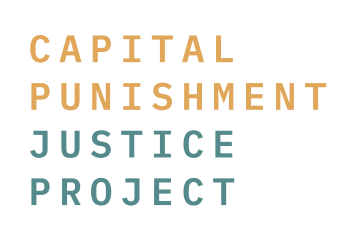Tonga: Government must not extend the death penalty to drug-related offences
We, the undersigned organisations, are gravely concerned about a debate held in Tonga’s Parliament late last month, which suggests the country may be considering extending the death penalty to drug-related offences. News reports and a press release from the Parliament of Tonga reported that the debate was held on 28 May 2024 in the Fale Alea ‘O Tonga Chambers, Tonga’s Legislative Assembly.
While the debate participants rejected this proposal by a strong margin of 38 to 8, the consideration of the use of the death penalty for drug-related offences is both unsettling and cause for great concern. As the last state in the Pacific to retain the death penalty in law, Tonga is classified by Amnesty International as ‘abolitionist in practice’, having not imposed a death sentence or carried out an execution since 1982.
Historically, the death penalty in Tonga has acted as a discretionary punishment for the crimes of murder or treason, and has been carried out by hanging. The Tongan parliament has successfully defeated two attempts to introduce the use of the death penalty for drug-related offences, the first in 2004 and the second in 2021. It is regrettable that the parliament has now hosted a public debate on capital punishment as a deterrent for drug-related offences. Sponsored by the Speaker, Lord Fakafānua, the Office of the Legislative Assembly of Tonga noted this marked the first public debate they have hosted. With the Government of Tonga maintaining that the country ‘faces increasing challenges related to illicit drug offences’, King Tupou VI is reported to have urged parliamentarians to find solutions.
Within Tonga, critics of the proposal that such “solutions” could be achieved through extending the death penalty to drug offences have expressed concerns that this approach would disproportionately affect people living in poverty and those who lack power and control over their own circumstances. Director of the Tongan Women and Children's Crisis Centre, Ofa Guttenbeil-Likiliki told ABC Pacific that human rights groups in Tonga have been calling on the government for two decades to repeal the death penalty due to its disproportionate effects on the nation’s most vulnerable people.
Citing existing issues with life imprisonment being a mandatory punishment in Tonga for drug trafficking, Guttenbeil-Likiliki called for drug-related crimes and trafficking to be dealt with through strategic national reforms rather than extending and relying on the death penalty. We encourage the Government of Tonga to turn to the growing body of evidence-based drug policy that is grounded in human rights and harm reduction principles to address their concerns.
The global trend towards abolition of the death penalty is clear. On 15 December 2022, a record 125 countries voted for a moratorium on the use of the death penalty at the UN General Assembly. Rather than explore opportunities to extend the death penalty, the Government of Tonga should consider joining this global trend and adopt both the International Covenant on Civil and Political Rights and its Second Optional Protocol, which is specifically aimed at the abolition of the death penalty.
Further, international law and standards make it clear that, even in countries where the death penalty is currently retained, ‘[d]rug-related offences can never serve as the basis for the imposition of the death penalty.’ Rather than taking the regressive step of expanding the death penalty, we call on the Government of Tonga to seek alternate methods to combat drug-related crimes, grounded in evidence and human rights, and to fully abolish this cruel punishment.
Signed:
Amnesty International
Anti-Death Penalty Asia Network (ADPAN)
Capital Punishment Justice Project (CPJP)
Harm Reduction International
Julian Wagner Memorial Fund (JWMF), Australia
Parliamentarians for Global Action (PGA)
World Coalition Against the Death Penalty







